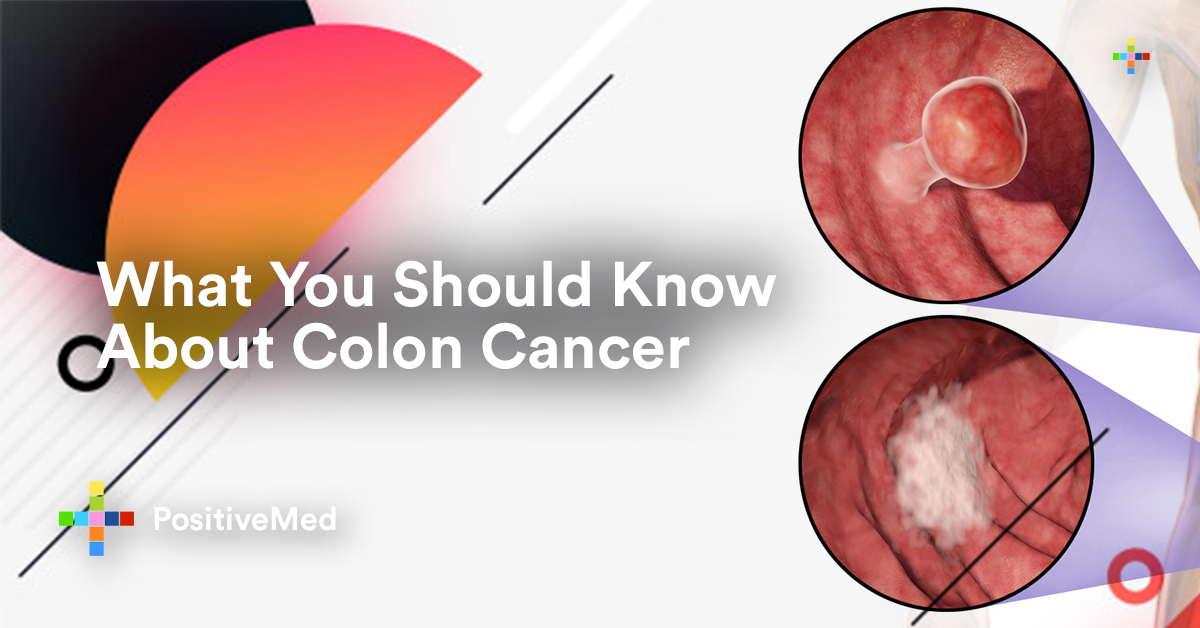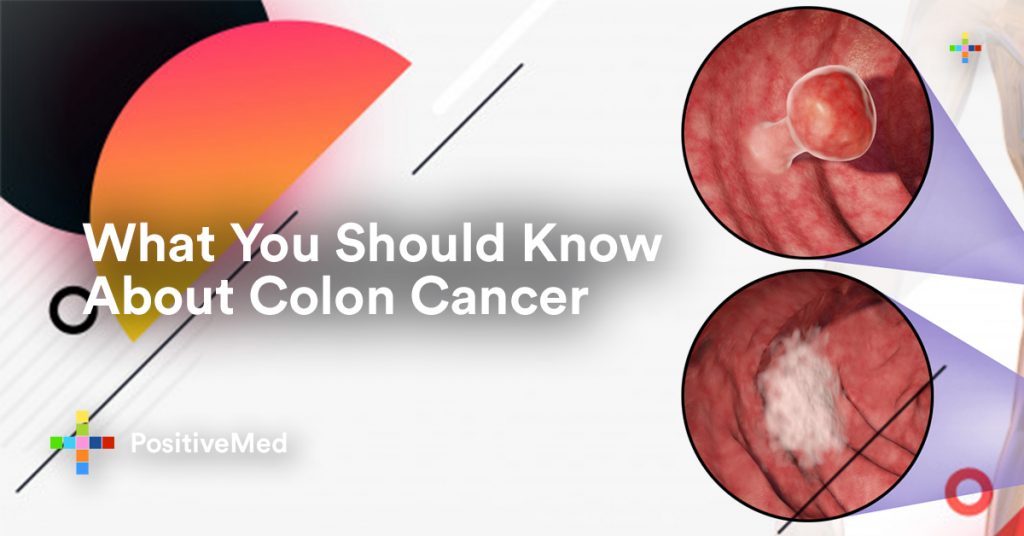Colon cancer is cancer of the large intestine (colon), the lower part of the digestive system. Rectal cancer is cancer of the last several inches of the colon. Together, they’re often referred to as colorectal cancers.
Most cases of colon cancer begin as small, noncancerous (benign) clumps of cells called
Adenomatous polyps
Over time some of these polyps become cancerous. Polyps may be small and produce few, if any, symptoms. For this reason, doctors recommend regular screening tests to help prevent cancer of colon by identifying polyps before they become colon cancer.

Signs and symptoms of this type of cancer include:
1. A change in bowel habits, including diarrhea or constipation or a change in the consistency of the stool
2. Rectal bleeding or blood in the stool
3. Persistent abdominal discomfort such as cramps, gas, or pain
4. A feeling that the bowel doesn’t empty completely
5. Weakness or fatigue
6. Unexplained weight loss
Many people with colon cancer experience no symptoms in the early stages of the disease. When symptoms appear, they’ll likely vary, depending on cancer’s size and location in the large intestine.
If the symptoms of colon cancer are appearing, such as blood in the stool or a persistent change in bowel habits, make an appointment with your doctor. Talk to them about when to begin screening for colon cancer. Guidelines generally recommend cancer screenings begin at age 50. A doctor may recommend more frequent or earlier screening if there are other risk factors, such as a family history of the disease.
In most cases, it’s not clear what causes colon cancer. Doctors know that colon cancer occurs when healthy cells in the colon become altered. Healthy cells grow and divide in an orderly way to keep the body functioning normally, but when a cell is damaged and becomes cancerous, cells continue to divide — even when new cells aren’t needed. These cancer cells can invade and destroy normal tissue nearby and can travel to other parts of the body.

Colon cancer most often begins as clumps of precancerous cells (polyps) on the inside lining of the colon. Polyps can appear mushroom-shaped, or they can be flat or recessed into the wall of the colon. Removing polyps before they become cancerous can prevent colon cancer. Inherited gene mutations that increase the risk of colon cancer can be passed through families, but these inherited genes are linked to only a small percentage of colon cancers. Inherited gene mutations don’t make cancer inevitable, but they can increase an individual’s risk of cancer significantly.
Factors that may increase your risk of colon cancer include:
1.Older age. The great majority of people diagnosed with colon cancer are older than 50. Colon cancer can occur in younger people, but it occurs much less frequently.
2. African-American race. African-Americans have a greater risk of colon cancer than people of other races.
3. A personal history of colorectal cancer or polyps.
3.Inflammatory intestinal conditions. Chronic inflammatory diseases of the colon, such as ulcerative colitis and Crohn’s disease
4. Inherited syndromes that increase colon cancer risk.
5. The Family history of colon cancer and colon polyps.
6. Low-fiber, high-fat diet. Research in this area has had mixed results. Some studies have found an increased risk of colon cancer in people who eat diets high in red meat.
7. A sedentary lifestyle.
8. Diabetes. People with diabetes and insulin resistance may have an increased risk of colon cancer.
9. Obesity. People who are obese have an increased risk of colon cancer and an increased risk of dying of colon cancer when compared with people considered normal weight.
10. Smoking.
11. Heavy use of alcohol.
12. Radiation therapy for cancer. Radiation therapy directed at the abdomen to treat previous cancers may increase the risk of colon cancer.
Increasing fiber, reducing alcohol use, quitting smoking, exercising a little more and losing the “spare tire” can help one avoid a wide variety of abdominal issues, including reducing the risk of colon cancer. If you or someone you know are experiencing any or a few of the symptoms mentioned before, it is time to see a doctor.
Disclaimer: This article is for informative purposes only, and should not be used as a replacement for expert medical advice
If you are a first-time visitor, please make sure to follow us on Pinterest and like us on Facebook to receive all th
By Khrystyana Kirton
Edited by Stephanie Dawson
Reviewed by Nima Shei MD






